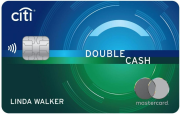The content on this page is accurate as of the posting date; however, some of the offers mentioned may have expired.

One of the previous articles dwelled upon retailers' interchange fees and finished with stating the Congress' determination to curb the fees or make them negotiable. Since then there's been lots of discussion on the issue and some of the suggestions imply loss to either of the sides involved.
The reason to curb transaction fees is really serious and thought provoking. It was revealed that unbanked consumers get the most of disadvantage as they are charged the same higher prices as cardholders frequently using plastic at a store. Evidently, cash paying customers wind up financing wealthy people's freedom to accumulate rewards. This being highly unfair, two radical policy options were put forward which will get attention further on.
Higher merchant prices, which come from the necessity to pay for transaction fees set by credit companies, do not stir up any great indignation among successful cardholders. The ability to earn cash back or frequent flyer miles rewards compensate for the extra price per item paid. Such customers do not know or do not care about how exactly they got that free vocation or a high value gift card.
Of course, their vacation has to be subsidized somehow and card-issuing companies get the funds by charging merchants transaction fees.
As stated by Visa and MasterCard, major companies that set interchange fee rules and control 80 % of the credit market, merchants do not realize all the benefit of accepting plastics. Estimates prove that cardholders usually spend more than they would with cash. It allows for increased revenues with fast payment process and fraud protection in to the bargain.
With only 2 percent of the price paid, retailers are not going to absorb the transaction fees; instead they concede two ways of reducing the higher costs they bear. They either continue charging higher prices for goods and services to all consumers or they give up card acceptance. Currently retailers try to keep the costs lower by offering discounts to cash paying customers but that doesn't help much as the number of card payments is steadily growing.
Adam Levitin, professor at the Georgetown University Law Center, suggests two smart options which would benefit all the parts involved in the credit card payments process. First is the elimination of rewards programs altogether. While it would entail the abolition of transaction fees, it will also deprive companies of a great source of revenues. But at the same time, they wouldn't have to draw funds to develop and finance all those instant approval offers with expensive miles and hotel stays.
The second option would be to preserve the retailer's normal prices for all but to charge a certain small fee for using a plastic. It seems fair. Why should people who never had a credit card or don't own one at the moment pay for the benefits meant for credit users? If you want that highly lucrative cash back or a free airline ticket, just don't be stingy and pay for it.
No resolution on how to improve the situation has been made so far. Until the better fee policy is established, it's consumers who will pay for low interest, rewards cards applications.







